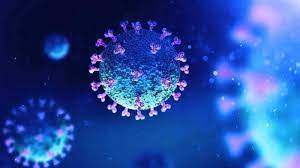
WHO Releases First-Ever List of Fungal Infection, Flags Global Health Threat: The World Health Organization (WHO) for the first time published a list of fungal infections — “priority pathogens”. The Fungal Priority Pathogen List (FPPL) includes 19 fungi that pose the greatest threat to human health. The UN agency warns that some species are becoming increasingly drug-resistant and increasing at alarming rates.
October 2022 Current Affairs Quiz
According to the WHO:
The World Health Organization says fungal infections are increasingly resistant to treatment and can be dangerous to mankind due to lack of attention, surveillance, treatment and diagnosis. “Bacterial antimicrobial resistance has emerged from the shadow of epidemics and fungal infections are on the rise, and becoming more resistant to treatments, which,” said Dr Hanan Balkhi, Assistant Director-General of WHO Assistant Antimicrobial Resistance (AMR). It is a public health concern worldwide.”
Three Different Kinds Of Fungal Pathogens:
The WHO FPPL is divided into three categories — critical, high and medium priority. These fungal pathogens are ranked in each priority category based on their impact on public health and/or emerging antifungal resistance risk. The critical group includes Candida auris, which is a highly drug-resistant fungi, Cryptococcus neoformans, Aspergillus fumigatus, and Candida albicans. The high priority group includes a number of other fungi from the Candida family as well as others such as Mucorales, a group containing “black fungus“, an infection which rose rapidly in seriously ill people, particularly in India, during Covid-19. The medium priority group lists a number of other fungi, including Coccidioides spp and Cryptococcus gattii.
The Urgency of the Hour:
More data on the impact of fungal infections on health is needed, according to Dr. Haileyesus Getahun, WHO Director, AMR Global Coordination Department. “We need more data and evidence on fungal infections and antifungal resistance to inform and improve response to these priority fungal pathogens,” he said, adding that countries should follow certain steps to create stronger resistance. “Countries are encouraged to follow a stepwise approach, starting with strengthening their fungal disease laboratory and surveillance capacities, and ensuring equitable access to existing quality therapeutics and diagnostics, globally,” said Dr Getahun.
Who Can Be The Most Affected:
The invasive forms of these fungal infections can affect people who are severely ill and who have significant underlying immune system-related conditions. In addition, people with cancer, HIV/AIDS, organ transplants, chronic respiratory disease, and post-primary tuberculosis are more vulnerable to invasive fungal infections.





